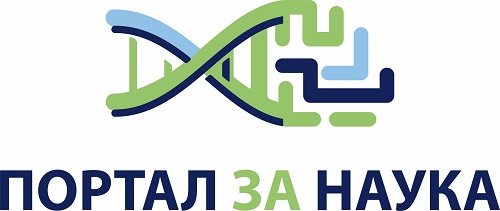Prof. Stefan Panaiotov
Prof. Stefan Panaiotov PhD, DSc was born in Madan on February 16, 1963. He completed his secondary education in Varna. In 1983 he enrolled to study at Sofia University ‘St. Climent Ohridski’, Faculty of Biology, specialty ‘Biotechnology’. In 1989 he completed a master’s degree in ‘Cell Biology’ at the University of Pisa, Italy. In 1990 he specialized in the Department of Biochemistry at Sofia University ‘St. Climent Ohridski’, Faculty of Biology. Then he worked for two years till 1993, as a visiting associate at the University of Rome ‘La Sapienza’ in Rome, Italy. From 1993 till 1998 he worked in the microbiology laboratory of the Hospital for Lung Diseases “King Ferdinand I” in the village of Iskrets, Sofia District, where he introduced the routine molecular diagnosis of tuberculosis in Bulgaria. In 2000 he started working in the Department of Microbiology of the National Center for Infectious and Parasitic Diseases in Sofia. In 2001 he received a Doctor’s degree (PhD), and in 2011 he obtained a diploma in Microbiology. In 2016 he defended his scientific degree ‘Doctor of Science’ (DSc). Over the years, he experienced career as a research associate (2001), associate professor (2012) and professor (2017). He has specialized in several European laboratories in Rome (1991-1993), London (1995), Florence (1996), Lausanne (2004), Marseille (2008), Paris (2015-2017). From 2012 till 2014 he was a Resident Twinning Advisor in Ankara, Turkey on a project between the EC, Bulgaria, Italy and Turkey. In 2015 he won the prestigious scholarship of the EC “Marie Curie” and for two years until 2017 worked on the problems of molecular epidemiology of tuberculosis in Bulgaria at the University of Paris. In 2018, Prof. Stefan Panaiotov fouded the Microbiome Sector at the Laboratory of Particularly Dangerous Bacterial Infections at the National Center for Infectious and Parasitic Diseases. The sector is dedicated to develop microbiome analysis in the field of medical research on chronic and latent infections, as a fundamental and promising research field for NCIPD and to raise the scientific prestige of the country.
The most significant scientific achievement of Prof. Panaiotov for 2018 was the proof of bacterial and fungal microbiome in the blood. While the bacterial microbiome in the blood is well described, the fungal microbiome was first proven and described by Prof. Panaiotov (Panaiotov S, Filevski G, Equestre M, Nikolova M, Kalfin R. 2018. Cultural Isolation and Characteristics of the Blood Microbiome of Healthy Individuals. Advances in Microbiology, 8, 406-421. doi: 10.4236/aim.2018.85027). The study of the microbiome in patients with latent infections is an undeveloped field. Currently, many leading scientific groups in the world are actively working in this direction.
Another significant achievement in 2020 of Prof. Panaiotov and the scientific group led by him from NCIPD and BulBio was the complete genomic sequencing and assembly of the genome of the Bulgarian vaccine BCG strain. The achievement is of national strategic importance and increases the prestige of the Bulgarian scientific community abroad. The announcement was published in 2021 in the journal Microbiology Resource Announcements – Complete genome sequence of Mycobacterium bovis BCG SL222 Sofia, the first WHO reference reagent for the M. bovis BCG Vaccine of the Russian BCG-I substrain https://doi.org/10.1128/MRA.01318-20.
Prof. Panaiotov participated and led more than 15 research national and international projects. He is author of 100 research publications with IF>120 obtaining >1000 citations and Hirsch index of 13.
In 2019, Prof. Panaiotov won funding under the Natinal Research Program “VIHREN” for the project ‘Advances in the unknown aetiology of sarcoidosis’.
Sarcoidosis is a multisystem granulomatous disease of unknown aetiology. Clinical presentation is nonspecific and variable. In more than 90% of cases, the lungs or thoracic lymph nodes are affected. In Europe, it is most common in Scandinavians. Diagnosis can be difficult. Symptoms may mimic those of other diseases. There is no test which can easily diagnose sarcoidosis. An infectious aetiology of sarcoidosis has long been suspected, but not definitely confirmed. For more than 100 years of extensive research, the causative agent of sarcoidosis is unknown and enigmatic.
Our objective is to progress towards a deep understanding of the infectious aetiology of sarcoidosis through innovative approaches by resuscitation of latent microbiota. Microbial stress, next generation sequencing, bioinformatic analysis and electron microscopic observations will be applied. Blood, affected lung and lymph tissues will be examined. Detailed microbial diversity analysis will be produced and investigated.
To achieve the objective we aim to prove three hypotheses: i. we assume that sarcoidosis is a latent/persistent chronic infection and the causative agent could be resuscitated and identified in blood and affected tissues; ii. Hamazaki-Wesenberg bodies, observed in lymph nodes, have microbial origin and could be the causative agent of sarcoidosis; iii. next generation sequencing methods and bioinformatic analysis could identify in blood, lung tissue and lymph node microbiota associated with sarcoidosis.
This project, at the borderline of medicine, biology and bioinformatics offers a novel approach to a long-standing problem and is a fundamental new contribution to study the aetiology of sarcoidosis. The identification of key aetiological agent(s) in sarcoidosis will greatly impact its’ diagnosis and treatment globally.
Contact address: NCIPD, Department of Microbiology, Blvd Janko Sakasov 26, Sofia 1504, e-mail: spanaiotov@yahoo.com

 Previous Post
Previous Post